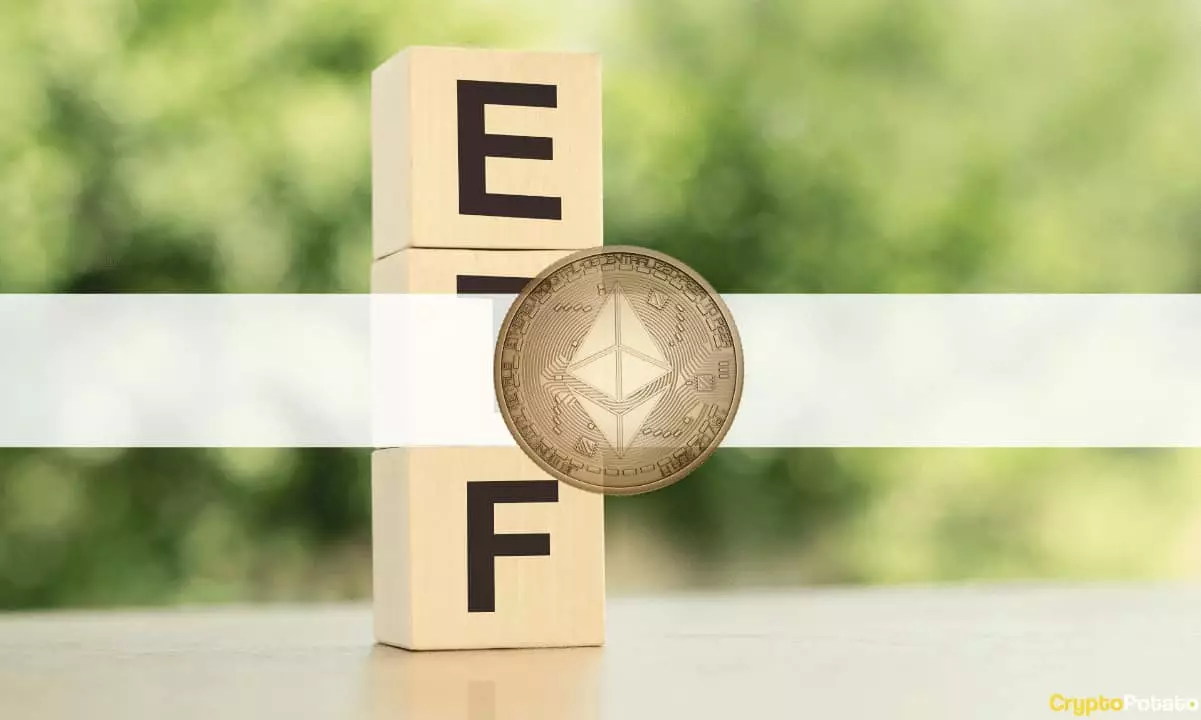The possibility of U.S. spot Ethereum (ETH) exchange-traded funds (ETFs) becoming a reality has sparked discussions about the potential impact on the market. While Bitcoin (BTC) ETFs have gained significant attention, there are questions about whether Ethereum ETFs will have a similar effect. According to Juan Leon, an analyst at Bitwise, the world’s largest crypto index fund manager, Ethereum ETFs are unlikely to have the same influence. Leon explains that even institutional investors who understand the differences between Bitcoin and Ethereum struggle to determine their respective places in a portfolio. To provide clarity, Leon uses the analogy of BTC as a gold-like asset and ETH as a high-growth tech stock.
Bitcoin Takes the Lead
Bitwise’s Chief Investment Officer, Matt Hougan, identifies two primary reasons why BTC ETFs would have a stronger impact on Bitcoin’s price compared to ETH ETFs. First, BTC is likely to be approved and launched before ETH ETFs, effectively dominating the market’s attention. While Ethereum is gaining traction, Bitcoin remains the leading cryptocurrency in terms of both market cap and recognition among institutional investors. Second, the utility of Bitcoin aligns better with what an ETF offers. Bitcoin serves as a store of wealth outside the fiat system, which resonates with the core purpose of an ETF. On the other hand, Ethereum’s functionality as a smart-contract platform is not directly impacted by the introduction of an ETF.
Ethereum’s Unique Value Proposition
Ethereum, often referred to as the “digital oil,” is widely regarded as more programmable than Bitcoin, allowing for the hosting of complex applications such as decentralized exchanges and lending services. Additionally, ETH is required to execute transactions on the Ethereum network, further bolstering its value proposition. According to Leon, financial advisors who understand Ethereum recognize its potential, especially in terms of staking, which provides cash flows resembling dividends. Furthermore, advisors are beginning to grasp the distinction between Bitcoin’s role as a store of value and Ethereum’s role as a smart-contract platform powering a robust “decentralized app store.”
Despite the relatively subdued inflows to Ethereum-based funds this year, Leon believes that institutional interest in ETH will grow in the long run. He attributes the lackluster inflows to several factors. Firstly, low crypto volumes across the board at the time of the Ethereum futures ETFs’ launch in October contributed to the underwhelming figures. Secondly, the mainstream media’s focus on Sam Bankman-Fried’s trial created distraction and diverted attention away from the crypto market’s resurgence. However, as more investors become aware of the crypto market’s rebound and Bitcoin’s status as the best-performing asset of the year, Leon predicts that interest in ETH will increase.
Leon emphasizes that the relative quiet surrounding Ethereum at present is temporary. While it may seem that institutional interest in ETH is lacking, Leon believes that it is merely a matter of time before the market realizes the benefits and potential of Ethereum. As more investors educate themselves about the crypto market and gain a deeper understanding of the differences between Bitcoin and Ethereum, ETH’s allure as a smart-contract platform and its dividend-like cash flows through staking will become more evident. The future holds promising growth and recognition for Ethereum within the institutional investment space.
Although the potential approval of Ethereum ETFs is an exciting development in the crypto market, it is reasonable to expect that their impact may not be as significant as that of Bitcoin ETFs. Bitcoin’s status as the leading cryptocurrency and its alignment with the core purpose of an ETF positions it to dominate the market and attract more attention initially. Nonetheless, as institutional investors gain a better understanding of Ethereum’s unique value proposition and its role in powering decentralized applications, the interest and recognition of ETH will likely grow. The quietness surrounding Ethereum at present should not be mistaken for a lack of interest, as it is simply a temporary phase in the broader adoption and recognition of this groundbreaking smart-contract platform.









